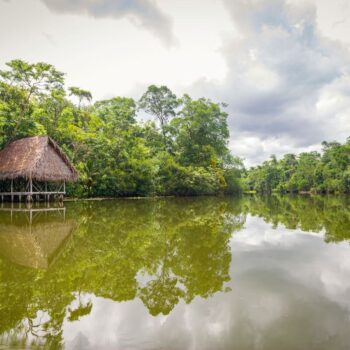To mark the unofficial launch of E3G as an organisation, John Ashton appeared on the Radio 4 Today programme to discuss our role in promoting environmental change.
You can listen to the archive recording of John’s interview on the Today programme website – scroll down the page to 8.42 am and click the link.
The transcript of the interview follows here below.
John Humphrys: Are you one of those good citizens who recycles everything, turns off the lights, uses the car as little as possible, all in the cause of protecting the environment?
Well, that’s fine, but there’s a new organisation born today that says that environmental change can really be brought about only by insiders – those who work in the government and in industry. It’s called E3G, Third Generation Environmentalists [sic], and its being run by John Ashton, who was the Foreign Office’s head of Environment Policy. Good Morning.
John Ashton: Good Morning John.
JH: Now, presumably ‘third generation’ because we have had the job being done very effectively, some people might say, by organizations like Greenpeace, Friends of the Earth, Soil Association, environmentalist groups.
JA: That’s right. I think the first generation goes back actually to the 19th century and before that – the roots of the conservation movement. The second generation started in the 60s and 70s and gave us the organisations that we are familiar with today. They have been hugely successful in setting an agenda, nobody can escape the agenda, but they have been less successful at delivering the solutions. So, we are not proposing an alternative to that. We want to build on the foundations that they have laid. We think that what they do is still extremely important but we want to mobilise people on the inside of institutions, in governments, business, civil society, science, even the media and see whether we can join people up to deliver solutions more effectively.
JH: But they are precisely the people who have been targeted by Friends of the Earth and so on.
JA: Well, they have been targeted successfully in as much as they are now much more aware of the problems…and concerned…
JH [interjects]: Exactly. If they are not aware now one wonders whether they ever would be…
JA: …concerned as individuals about the problems. What is harder is that they don’t always know what are the choices that they can make – [JH: Really?] – the practical choices they can make in concert with others working in other institutions, that will help them be part of the solution rather than be part of the problem.
JH: Give me an example of that because everybody for instance working in the Department of Transport knows that the fewer cars that are driving around our roads and cities, the fewer environmental problems we have from them. So, I mean, isn’t that all blindingly obvious?
JA: At one level it may be. But take the problem of climate change which we were talking about earlier. Over the next twenty years there will be something like 16 trillion dollars of capital invested in energy systems. And the challenge with climate change is to make sure that that investment flows in ways that give you clean energy that doesn’t destabilise the climate rather than continuing greenhouse gases emissions. That’s not a simple problem that can be solved simply by choices of individuals acting alone, there needs to be a pattern of choice offered that joins up what people are doing in different countries and institutions…
JH: So, very, very quickly, are you a pressure group or what are you if not?
JA: We are not a pressure group, we are a means of mobilising people coherently across institutions on the inside, we complement the work of pressure groups.
JH: And you have the support of the government?
JA: We are not a governmental organisation. We have conversations with government, with business, with NGOs. We not pro-government or anti-government. We work with anybody who wants to help us deliver solutions.
JH: John Ashton, many thanks.


